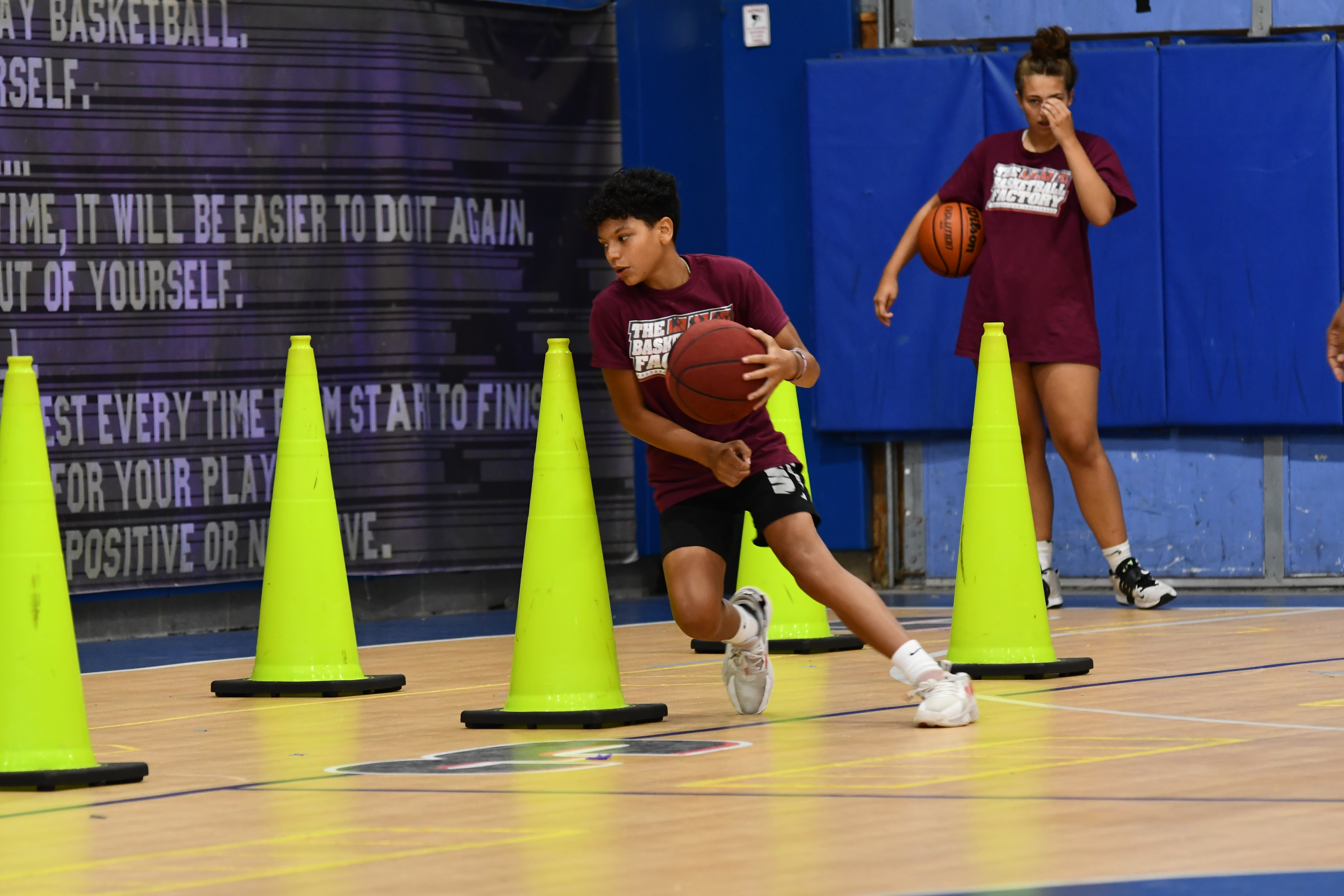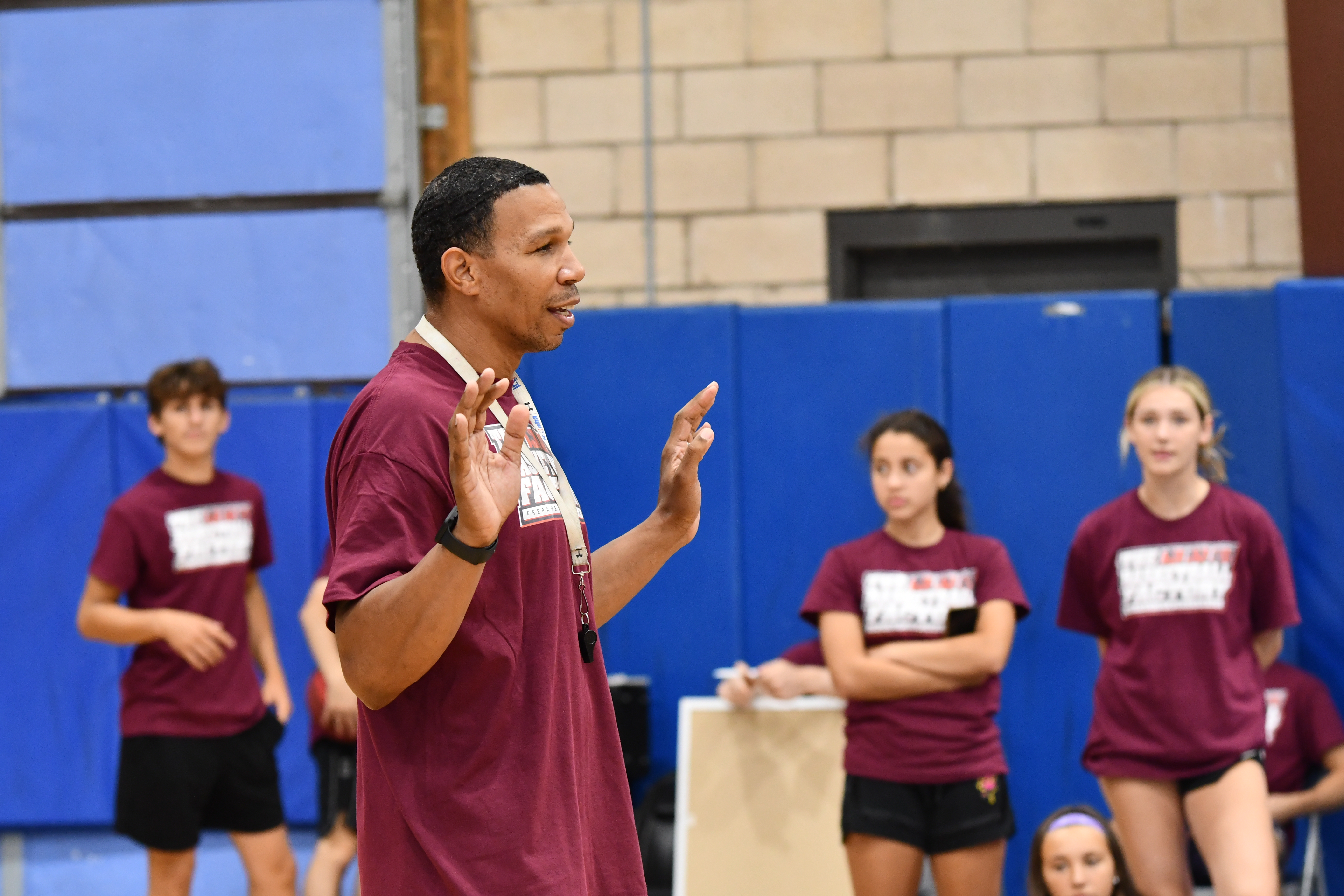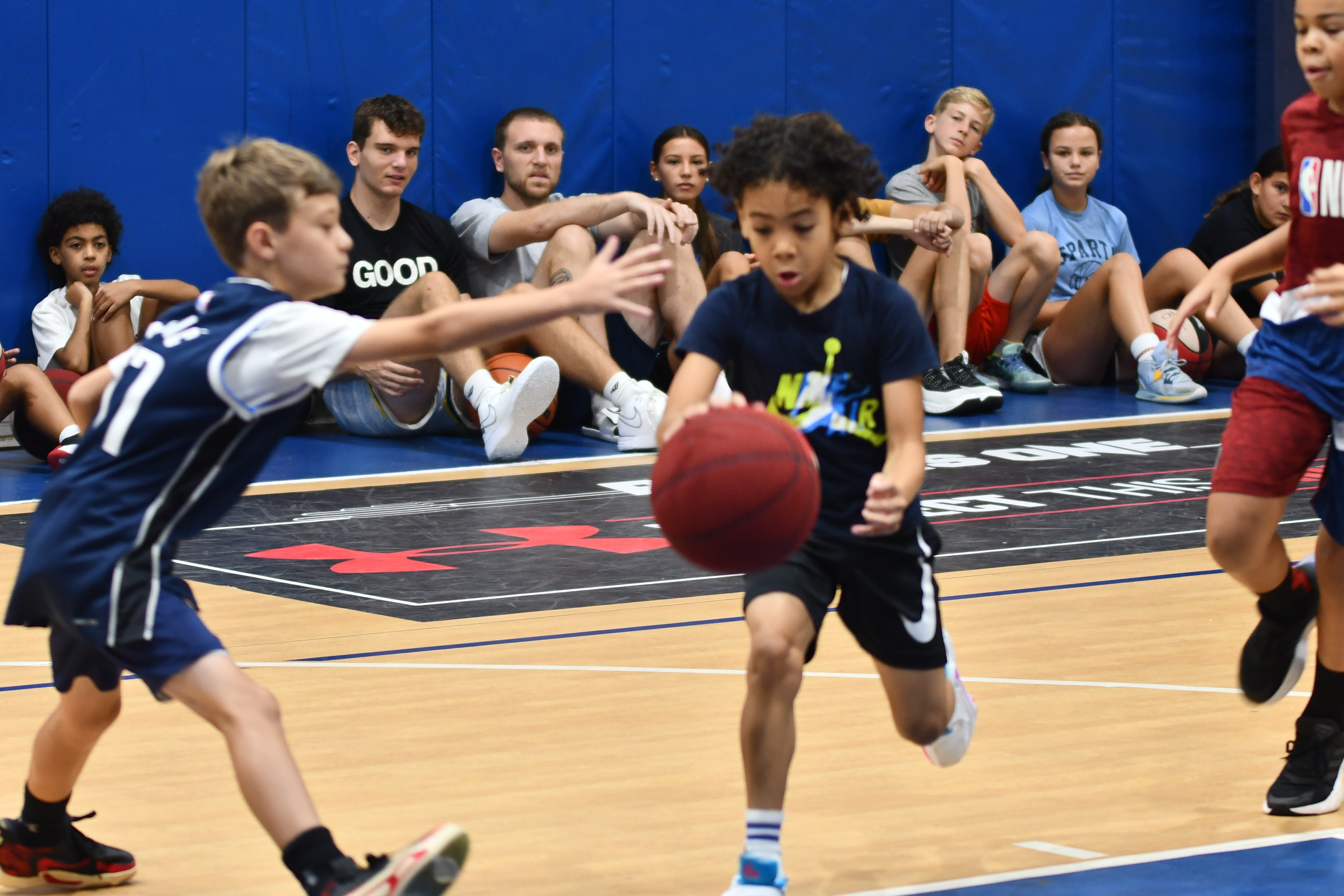Understanding the Building Blocks of Basketball Success
Basketball is often viewed through the lens of high-flying dunks and three-point shots, but the true essence of the game lies much deeper. The foundation for success starts with mastering the fundamentals. Players frequently fall into the trap of imitating the flashy moves they see in highlight reels, neglecting the essential skills that form the core of effective play. According to Kevin Houston, a noted expert in basketball performance, “Without the fundamentals, even the most talented player can fail to succeed on the court.” This statement rings true for countless players who struggle when they skip over the basics.
Dribbling, passing, shooting, and defense are not merely skills; they are the building blocks of any competent player. Take dribbling for instance: it isn’t just about bouncing the ball—it’s about controlling it under pressure and making quick, precise movements. Effective dribbling allows for better navigation of the court, which is crucial when facing a tight defense. Similarly, proper shooting technique, including footwork and shot selection, is vital. Players who can’t shoot accurately will find it challenging to contribute on offense.
Passing, often underappreciated, is another skill that requires serious attention. A well-timed, accurate pass can create scoring opportunities and keep the team flowing smoothly during offensive plays. But what’s often overlooked? Defense. The significance of anticipation and correct positioning can change game dynamics dramatically. Players need to recognize that defense can be more impactful than a highlight-reel block or steal.
Additionally, the role of mental toughness and work ethic cannot be understated in player development. Those who consistently dedicate time and effort during practices often set themselves apart from others. Kevin emphasizes that mental resilience is key; a player must recover from mistakes quickly, keeping their confidence intact. This internal fortitude is what helps players perform well even under the pressure of high-stakes situations.
Another critical element discussed is effective coaching. A good coach doesn’t just call the shots; they provide personalized feedback and mentorship that fosters long-term growth. Coaches who concentrate only on winning can impede a player’s development, leading to shallow skill sets. Confidence plays a vital role here as well; feedback from a trusting coach can significantly enhance a player’s self-belief, ultimately correlating with on-court performance.
Furthermore, the importance of physical conditioning cannot be overlooked. A well-conditioned athlete is less prone to injury and can maintain performance levels throughout the game. As Kevin points out, youth basketball should strike a balance between competitiveness and skill development. An overly aggressive focus on winning can lead to burnout, especially for younger players, stripping the game of its inherent joy.
In the realm of basketball, understanding and mastering these building blocks—fundamentals, mental strength, quality coaching, and conditioning—forms the backbone of what it means to be successful on the court.
The Role of Work Ethic and Mental Toughness
In the realm of sports, and especially basketball, the profound concepts of work ethic and mental toughness hold significant sway over an athlete’s success. Work ethic, in essence, goes beyond mere attendance in practices; it’s about committing to high-quality training sessions and relentless improvement. A player’s dedication to mastering their craft plays a pivotal role in shaping their capabilities on the court. Strong work habits enable athletes not just to hone their technical skills, such as dribbling and shooting but also to cultivate the resilience needed to withstand the pressures of competitive play.
Mental toughness is another crucial pillar that can often make or break a player’s performance. In intense game situations, athletes experience the heat of competition, which can be emotionally taxing. The ability to maintain composure, make quick decisions, and bounce back from mistakes is what distinguishes the remarkable players from the good ones. As an anonymous quote succinctly puts it,
“What separates the good players from the great ones is the ability to rise after falling.”
This mindset not only helps in addressing mistakes but also in viewing them as invaluable opportunities for growth, rather than setbacks.
Moreover, cultivating a growth mindset is imperative for any player who aspires to refine their skills continuously. This mindset encourages individuals to embrace challenges and view them as part of the learning process. Players are urged to approach their training with intentionality—whether it means dedicating extra hours to practice or seeking feedback on their performance. Research indicates that athletes who practice with purpose are more adept at excelling when faced with pressure during crucial moments in a game. This highlights the relationship between diligent practice and enhanced confidence.
Consider a scenario where a player misses a critical shot during a final match; a resilient player with a strong work ethic would analyze the situation—taking note of what went wrong—rather than wallowing in disappointment. This ability to self-reflect and adjust is vital for long-term success in basketball.
-
Work Ethic: Quality practice and dedication to improvement.
-
Mental Toughness: Composure under pressure and quick recovery from setbacks.
-
Growth Mindset: Viewing challenges as opportunities to learn and grow.
The intersection of these concepts lays the groundwork for not only better athletic performance but also personal development. As players integrate a robust work ethic with mental resilience, they find themselves not only excelling on the court but also experiencing greater joy and fulfillment in their basketball journey.
The Influence of Coaching on Player Development
Effective coaching is foundational in nurturing a player’s growth, not only in terms of skill but also in building their confidence and self-belief. At its core, coaching transcends the traditional expectations of merely guiding players through plays; it embodies a holistic approach that fosters long-term development. A great coach serves as both a strategist and a mentor, carefully shaping athletes into well-rounded individuals who can thrive under the pressures of competition.
Dissecting What Effective Coaching Truly Means
The term ‘effective coaching’ encapsulates numerous attributes that contribute to a player’s success. Many might argue that wins and losses define a coach’s capabilities, yet good coaching prioritizes skill development over immediate results. Coaches should focus on helping athletes master the fundamentals—dribbling, shooting, passing, and defense—before they think about adopting any flashy moves akin to those shown in highlight reels. For instance, a player’s dribbling technique should evolve to include controlling the ball under pressure and executing precise movements, laying the groundwork for future successes on the court.
The Balance of Feedback and Guidance
Constructive feedback plays a pivotal role in a player’s development. Coaches must draw the delicate line between encouraging improvement and maintaining a player’s morale. Studies suggest that players who receive consistent, tailored feedback tend to outperform peers who merely play for accolades. Kevin Houston, in one of his discussions, emphasized,
“A coach is not just a trainer; they are a mentor guiding a player’s journey.”
This sentiment underscores the necessity of a coach offering guidance that resonates with each player’s unique skills and challenges.
Building Confidence Through Mentorship
Confidence often makes the difference between a player who hesitates and one who thrives in high-pressure situations. Coaches have an extraordinary opportunity to instill self-belief in their players. By acknowledging both successes and areas for improvement, a coach can inspire players to take the necessary risks when it matters most. Furthermore, a strong mentorship dynamic helps cultivate an environment where players feel supported, allowing them to evoke their mental toughness which is crucial to performing well under pressure.
-
Effective coaching leads to better performance in high-pressure situations.
-
Player confidence often correlates with receiving constructive, actionable feedback from coaches.
-
Building strong coach-player dynamics can significantly influence a player’s journey.
Ultimately, the true influence of coaching on player development lies in its ability to marry skill enhancement with the emotional and psychological growth of the athlete. In recognizing the multifaceted nature of this relationship, players can emerge not only as competent athletes but also as self-assured individuals prepared for the challenges of both sports and life.
Navigating Playing Time and Physical Conditioning
In the journey of a basketball player, understanding the intricate dance between playing time and physical conditioning can lead to profound developments in skills and overall enjoyment of the game. Often, young athletes find themselves grappling with the emotional weight of inconsistent playing time. This can not only dampen morale but also stifle essential skill development. When players don’t get adequate minutes on the court, they miss out on crucial opportunities to adapt and refine their techniques in real-game scenarios. This inconsistency becomes a roadblock on their development path, leaving them feeling uncertain about their growth.
Moreover, physical conditioning plays a pivotal role in a player’s success. The more fit a player is, the better equipped they are to handle the demands of the game. Insufficient physical training can open the door to injuries, which are not just setbacks but can unravel hard-earned progress. Coaches and youth programs need to prioritize fitness routines alongside skill drills, ensuring players develop the stamina and strength necessary to thrive.
One might argue, though, that amidst the competitive atmosphere, focusing too heavily on winning can lead to significant drawbacks. It’s easy to get caught up in shiny trophies and championship titles, but Kevin Houston, the host of a popular podcast, emphasizes the importance of nurturing skill development above all. He believes that when winning overshadows individual growth, players can face burnout or disengagement, detracting from their love for the game. Instead, a balanced approach should be adopted—where the excitement of competition fuels rather than eclipses the development focus.
“Winning is important, but the journey of growth and enjoyment in the game is what lasts a lifetime.” – Anonymous
To sum up, the interplay between consistent playing time and robust physical training forms the backbone of a developing basketball player. Coaches and youth programs must reinforce the importance of these elements, creating an environment that celebrates skill mastery while fostering a competitive yet enjoyable atmosphere. This holistic approach to youth basketball can lead to not only well-rounded athletes but also lasting enthusiasts of the game. Ultimately, fostering an environment that emphasizes the journey rather than just the destination could serve as the key to unlocking a player’s full potential.
TL;DR: Young basketball players must navigate the challenges of inconsistent playing time and the critical need for physical conditioning to ensure skill development. A focus on these elements amidst a competitive framework can lead to profound growth and enjoyment in basketball rather than an overemphasis on winning.






